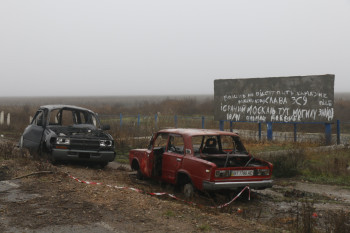The Swiss government said confiscating Russian assets was against the country's constitution and could “violate Switzerland’s international obligations,” the European Pravda media outlet reported on Feb. 15.
Switzerland’s Foreign Minister Ignazio Cassis said on Jan. 20 that his country supports the idea of using frozen Russian assets for Ukraine’s reconstruction, but it would require “major legal adjustments.”
According to Cassis, current Swiss legislation doesn’t allow the confiscation of sanctioned assets, and a referendum may be needed to change this law.
“We can’t just take money that doesn’t belong to us because we think it’s morally right… It’s about finding the right mechanisms so that there are no side effects greater than the intended main effect — almost like in medicine,” said Cassis, as cited by Bloomberg.
As of Dec. 1, Switzerland has frozen financial assets worth nearly $8 billion in response to Russia’s invasion of Ukraine, the State Secretariat for Economic Affairs (SECO) said. Fifteen Russian properties have also been blocked as of Nov. 25, the agency reported.
The Swiss government has not allowed Spain to transfer Swiss-made anti-aircraft guns to Ukraine, Reuters reported on Feb. 10.
Earlier, Bern rejected requests from Denmark and Germany, which wanted to supply Swiss-made armored vehicles and ammunition to Ukraine.
The Swiss government prohibits countries that purchase Swiss arms from re-exporting them without permission. Swiss neutrality also dictates that Switzerland will not send weapons directly or indirectly to any side of a war. The country also has an embargo on arms sales to Ukraine and Russia.
Reuters reported on Feb. 7 that Switzerland could end a ban on exports of Swiss weapons to war zones as a shift in public and political opinion puts pressure on the government to end the centuries-long tradition of being a neutral state.
A survey by the Sotomo Institute published on Feb. 5 showed that 55% of respondents in Switzerland favor allowing weapons re-exports to Ukraine.










